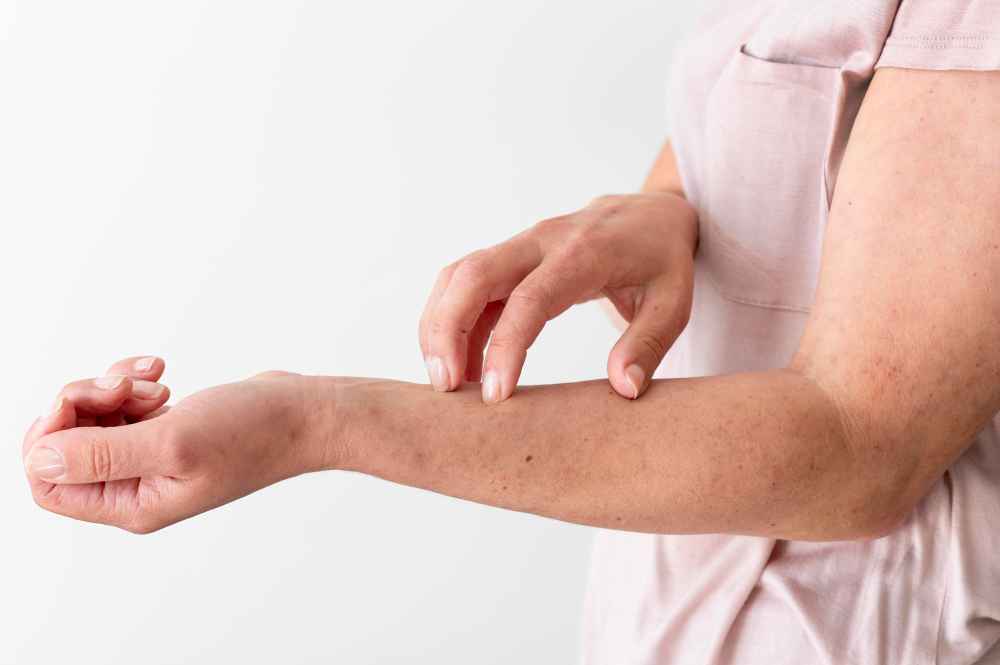- About Us
- Treatments
Skin Treatments
MenuMenuHair Treatments
MenuBody Treatments
Menu - Procedures
Aesthetics
MenuCosmetic Surgery
Menu - Training
- Products
- Gallery
- Contact Us
Skin allergies are a common type of allergic reaction that occurs when the immune system overreacts to a substance that comes in contact with the skin. These reactions can range from mild to severe and can affect people of all ages. Some of the most common skin allergens include certain foods, plants, cosmetics, and medications.

Allergies occur on the skin when the immune system reacts to a substance that it perceives as a threat. Here are some of the reasons why skin allergies occur:
Immune System Response: When an allergen comes into contact with the skin, the immune system responds by producing antibodies that target the allergen.
Histamine Release: In response to the antibodies, mast cells in the skin release histamine, a chemical that causes inflammation and itching.
Skin Sensitization: In some cases, repeated exposure to an allergen can sensitize the skin, causing it to become more reactive to the substance over time.
There are several different types of skin allergies, each with its own set of symptoms and triggers. Here are some of the most common types of skin allergies:
The treatment for skin allergy depends on the severity of the symptoms and the cause of the allergy. Here are some of the common ways to cure skin allergies:
Skin allergies occur when the immune system reacts to an allergen, and can be treated with avoidance of the allergen, topical treatments, medications, and allergy shots. At-home remedies can also help to alleviate mild symptoms. Seek medical advice if symptoms persist or worsen
Book An Appointment